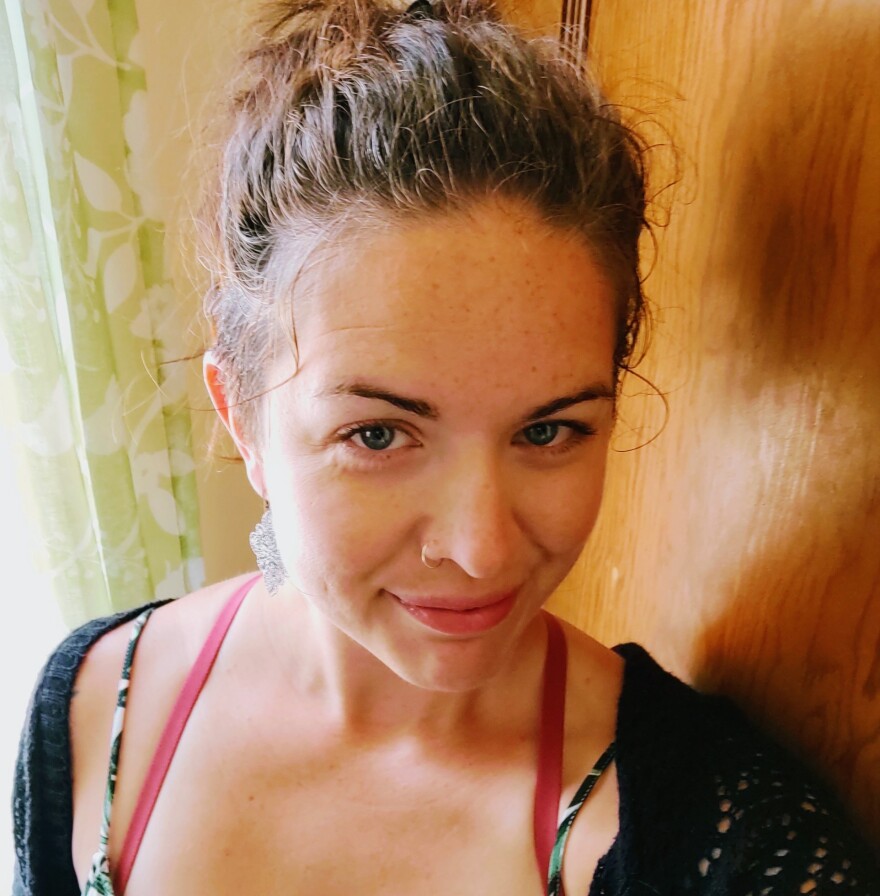When someone who's homeless in Harrisonburg gets COVID-19, the city has been paying for them to stay in a hotel. But Harrisonburg stopped doing that at the beginning of the month -- and shelters are scrambling to come up with an alternative. WMRA's Randi B. Hagi reports.
Rachel Gaghan says the hotel program was a huge help to the unhoused community and the service organizations that work with them. She's the director at the Suitcase Clinic, a mobile organization that provides free healthcare to the local homeless population.

RACHEL GAGHAN: The city did this great thing with some of their disaster funds right off the bat, which was putting up our unhoused neighbors in hotel/motel rooms with cooperating hotels in the city so that they were able to appropriately quarantine and isolate. Our nurse case manager would call them everyday and check on them … So we did a lot of great care coordination in that program, and it just kept our common area shelters safe.
But on October 4th, Gaghan said the clinic and other organizations got an email saying the city was putting a pause on providing those rooms.
GAGHAN: We're starting to hear and use the word 'endemic' with this sickness … and that really, what we didn't know, was that the city had been really overstretching themselves with this hotel program. And the hotels had been overstretching themselves with this program.
The next day, the shelter Open Doors, which has been operating out of the former Red Front grocery store since late last year, had two guests test positive for COVID-19. The staff had to figure out how to take care of them without endangering the other people staying there. Open Doors and the Suitcase Clinic worked with Paul Helmuth, the city's deputy emergency coordinator, to set up a quarantine zone in a corner of the shelter.
ASHLEY ROBINSON: In the event that someone would come in and present with symptoms, they would be tested. If they were positive, we would likely move their bed over to a quarantined area.
Ashley Robinson is the shelter director at Open Doors.
ROBINSON: They would be over there through the night, so basically while they're here they would be in quarantine. This is where it gets tricky, because then during the day we close at 7 a.m., and we don't really have a good answer for what happens at 7 a.m.
They ended up having five guests with COVID-19 -- all of whom have, thankfully, recovered. But now Robinson and her colleagues are facing a new reality -- one in which COVID outbreaks are possible for the foreseeable future, and shelter staff are left holding the bag of who's going to house the homeless while they recuperate. And it's not like running a shelter is an easy job to begin with, especially when it's short-staffed.
ROBINSON: That really has been the biggest issue, is just not having bodies to provide the monitoring during the day, and trying to figure out how we can have those bodies in here to monitor. And I think, too, and it's a fair concern, is that some people are like, oh, I don't want to be in the building if there are COVID-positive people.
According to the city's director of communications, Michael Parks, they decided to stop arranging the hotel accommodations because, as travel and tourism picked back up, it became too difficult to find available rooms.

MICHAEL PARKS: I could see someone saying, 'well, there's a lot of hotels in town, how could that be the case?' Well, not every hotel is suitable for this program … They have to be willing to take part in the program. And there were certainly some concerns with businesses that we've worked with over the last 18 months where, either they weren't comfortable housing people who possibly had COVID or who did have COVID, or they had staffing concerns … But also we needed hotels, as much as possible, with outward-facing doors for each unit.
He said that, at times over the last 18 months, the city would be housing up to eight people at a time in hotel rooms.
PARKS: We've had more than 400 nights' worth of stays, impacting nearly 60 people that have needed to be quarantined or isolated. Now not all those are shelter guests -- now, sometimes we may have an individual who was staying with a friend or another accommodation. Maybe they're sleeping on someone's couch. They come in contact, or they have a confirmed case, and they can't stay there anymore, but they also can't go to the shelter, and so that has been some of the stays as well.
So, now that Open Doors is figuring out how to handle COVID cases in-house --
PARKS: What we're doing right now is looking to see, is there funding that could be available to help in those efforts?
In the meantime, Robinson and Gaghan are navigating the pandemic -- or endemic -- alongside the people they serve.
GAGHAN: It's pretty infrequent that they feel like they're having a real, informed seat at the table for what happens to them, in a lot of ways. And so the initial response from a lot of guests was anger, some people were nervous, some people were confused about the lack of the hotel program, and wanting to know if that building setup was safe, and we kind of had to walk that with them.


